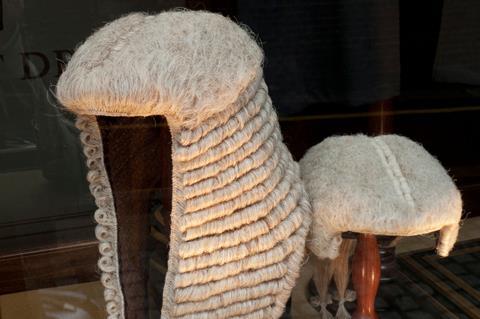The Ministry of Justice has confirmed a 6% rise in judicial salaries. It will bring the salary of senior district judges, including those at the Old Bailey, designated family judges and the recorders of Liverpool and Manchester, up to £180,522.
The lady chief justice will be paid £312,510, up fromf £294,821 last year. The master of the rolls and president of the Supreme Court receive £279,051, effective from April this year.
Salary group 2, which includes the chancellor of the High Court, the Supreme Court’s justices and deputy president, as well as the presidents of the Family Division and the King’s Bench Division and the senior president of the tribunals, saw their salaries rise from £254,274 to £269,530.
Lord and lady justices of appeal now earn £256,304.
The presidents of the Employment Appeal Tribunal, the Upper Tribunal and the chancery supervising judge, all form part of salary group 4 and receive £225,092.

Read more:
Senior circuit judges and judges of the Business and Property Courts as well as the president of the Employment Tribunals in England and Wales earn £180,522.
Upper Tribunal judges are amongst those who now earn £173,856 while circuit judges, masters and costs judges of the senior courts, and others in salary group 5.2, have had their salaries rise from £157,705 to £167,167.
District judges now earn £134,105 compared to £126,514 in April 2023.
Judicial daily sitting fees for 2024 to 2025, and effective from 1 April 2024, have also increased. Deputy high court judges sitting in England and Wales now earn £1,071.88, deputy district judges earn £623.74, or £642.34 with the London weighting fee.
Recorders’ daily sitting fee is now £796.04 while employment judges’ daily sitting fees have risen to £609.58 or £627.76 with the London weighting fee.
The figures follow justice secretary Shabana Mahmood’s announcement in July that the government would be accepting the Senior Salaries Review Body’s recommendation of a pay award of 6% for all judicial office holders in full which would be backdated to April 2024.
At the time, she said: ‘I recognise the SSRB’s concerns regarding persistent recruitment and retention issues affecting parts of the judiciary. I look forward to working alongside the judiciary to understand how we can start to address these shortfalls through system-wide reforms.
‘I hope this increase demonstrates the value that I and the government place on our independent judiciary and their unwavering commitment to the delivery of justice and the rule of law.’
This article is now closed for comment.



























10 Readers' comments